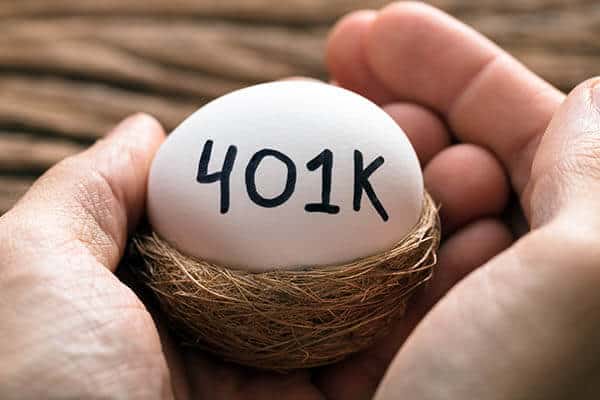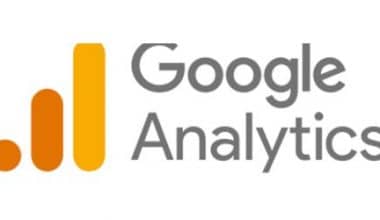When it comes to securing funding for unexpected expenses, major purchases, or debt repayment, many people consider borrowing from their 401k plan as a source of financing.
Borrowing from your 401k can be a convenient option as the funds are readily available and the loan process is often faster and less complicated than other financing options.
However, before making the decision of borrowing from your 401k, it’s important to understand the rules and requirements of your specific plan, as well as the potential consequences of taking out a loan from your retirement savings.
Taking a loan from your 401k can impact your long-term retirement savings and increase your overall financial risk.
In this article, we will provide a comprehensive overview of borrowing from your 401k plan, including eligibility requirements, loan limits, repayment terms, interest rates, and potential consequences of default.
We will also explore alternative financing options and discuss the steps you can take to make an informed decision about borrowing from your 401k.
Whether you’re facing an unexpected expense, considering a major purchase, or looking for a way to repay debt, understanding the pros and cons of borrowing from your 401k is a critical first step in developing a sound financial strategy.
How Does Borrowing From Your 401k Work?
Borrowing from your 401k involves taking out a loan from your retirement savings account and repaying it with interest.
The loan amount is limited to the lesser of $50,000 or 50% of your vested account balance. Which must be repaid within a certain timeframe, typically within 5 years.
The interest you pay on the loan goes back into your 401(k) account. It’s important to note that if you leave your job, the loan must be repaid in full or it will be treated as a taxable distribution.
Additionally, taking a loan from your 401k can impact your long-term retirement savings. It’s crucial to weigh the potential benefits against the drawbacks before making a decision.
Can I Borrow From My 401k Without Penalty?
Yes, you can borrow from your 401k without incurring a penalty, as long as the loan is repaid according to the terms outlined in your plan.
However, there may be tax consequences if you do not repay the loan as agreed.
If you leave your job, the loan must be repaid in full or it will be treated as a taxable distribution and you will owe income taxes and a potential early withdrawal penalty (if you are under 59 and a half years old).
Additionally, taking a loan from your 401k can impact your long-term retirement savings, so it’s important to consider all the consequences before making a decision.
Can You Borrow Money From Your 401k?
Yes, you can borrow money from your 401k plan if your plan allows it.
Borrowing from your 401k involves taking out a loan from your retirement savings account and repaying it with interest.
The loan amount is limited to the lesser of $50,000 or 50% of your vested account balance, and must be repaid within a certain timeframe, typically within 5 years.
The interest you pay on the loan goes back into your 401k account.
However, it’s important to consider the potential consequences of borrowing from your 401k. such as the impact on your long-term retirement savings and the tax implications if you do not repay the loan as agreed.
What is the Downside to Borrowing Money From Your 401k?
Borrowing from your 401k can have several drawbacks, including:
#1. Reduced Retirement Savings
Taking a loan from your 401k reduces your retirement savings and the compound interest that could have been earned over time.
#2. Repayment Terms
If you leave your job, the loan must be repaid in full within a short timeframe. Or it will be treated as a taxable distribution.
#3. Opportunity Cost
The money you borrow is no longer invested and growing, which means you are missing out on potential returns.
#4. Lost Employer Contributions
If your employer matches a portion of your contributions, you will miss out on those matching funds while you are repaying the loan.
#5. Loan Default Risk
If you are unable to repay the loan as agreed, it will be treated as a taxable distribution. And you will owe income taxes and a potential early withdrawal penalty (if you are under 59 and a half years old).
It’s important to carefully weigh the potential benefits against the drawbacks before deciding to borrow from your 401k.
How Long Do You Have to Wait to Borrow From Your 401k?
The waiting period to borrow from your 401k plan will vary depending on the terms of your specific plan.
Some plans may allow you to borrow from your account as soon as you have vested. While others may require you to wait a certain amount of time before you are eligible to take a loan.
It’s best to check with your plan administrator for the specific details on the eligibility and waiting period for taking a loan from your 401k.
What is the Maximum 401k Loan Amount?
The maximum amount you can borrow from your 401k plan is typically limited to the lesser of $50,000 or 50% of your vested account balance.
It’s important to check with your plan administrator for the specific loan limits for your 401(k) plan, as some plans may have different limits.
Additionally, the amount you can borrow may be impacted by any outstanding loans from your 401k account.
Can I Borrow From My 401k to Buy a Car?
You can borrow money from your 401k plan to buy a car. If your plan permits it and you are eligible, you may do so.
However, before you draw from your retirement savings, you should think about the possible repercussions. For instance, how not making the loan repayment as scheduled may affect your long-term retirement plans and your tax situation.
Alternative financing choices, like a personal loan or a car loan, can also be available and be a better fit for your requirements. It’s wise to weigh all of your options before choosing one.
Borrowing From 401k For House
Yes, you can use a loan from your 401k plan to purchase a house. This is if your plan allows it and you meet the eligibility requirements.
However, it’s important to consider the potential consequences of borrowing from your retirement savings. Such as the impact on your long-term retirement plans and the tax implications if you do not repay the loan as agreed.
Additionally, there may be alternative financing options, such as a mortgage loan or a home equity loan, that may be a better fit for your needs. It’s best to explore all your options before making a decision.
It’s also important to weigh the potential benefits of homeownership against the risks, such as the possibility of a housing market downturn or an increase in interest rates. And make sure that homeownership aligns with your long-term financial goals.
Borrowing From 401k Rules
The rules for borrowing from your 401k plan will vary depending on the terms of your specific plan. Some of the most common rules include:
#1. Eligibility
To be eligible to borrow from your 401k, you must typically be an active participant in the plan. You will need to meet any other requirements set forth by the plan.
#2. Loan Limits
The maximum amount you can borrow from your 401(k) plan is typically limited to the lesser of $50,000 or 50% of your vested account balance.
#3. Repayment Terms
You must repay the loan with interest within a certain timeframe, typically within 5 years. If you leave your job, the loan must be repaid in full within a short timeframe. Or it will be treated as a taxable distribution.
#4. Interest Rates
The interest rate for a 401k loan is typically set by the plan and is based on market rates. You will pay interest on the loan amount and the interest goes back into your 401k account.
#5. Loan Default
If you are unable to repay the loan as agreed, it will be treated as a taxable distribution. Further meaning that you will owe income taxes and a potential early withdrawal penalty (if you are under 59 and a half years old).
It’s important to carefully review the rules and requirements for borrowing from your 401k plan. Understand the potential consequences before making a decision.
It’s also a good idea to consult with a financial advisor to help you make an informed decision.
Borrowing From 401k To Pay Off Debt
Borrowing from your 401k plan to pay off debt is an option that some people consider. However, it’s important to understand the potential consequences before making a decision.
On the one hand, using a loan from your 401k to pay off high-interest debt, such as credit card debt, can reduce your monthly expenses and help you pay off debt more quickly.
On the other hand, borrowing from your 401k can impact your long-term retirement savings and may result in a taxable distribution if you are unable to repay the loan as agreed.
Additionally, it’s important to consider other debt repayment options, such as a debt consolidation loan or a debt management plan. They may have a lower impact on your long-term financial goals.
It’s also a good idea to work with a financial advisor to develop a debt repayment plan that takes into account your overall financial situation. And also helps you achieve your long-term financial goals.
Ultimately, borrowing from your 401k to pay off debt should be a decision made after careful consideration. Also with the help of a financial advisor if needed.
Conclusion
In conclusion, borrowing from your 401k can be a viable option in certain circumstances. However, it’s important to understand the potential consequences and weigh them against your financial goals.
Before making a decision, it’s important to carefully review the rules and requirements for borrowing from your specific 401k plan. It’s also important to understand the potential impact on your long-term retirement savings.
Additionally, it’s a good idea to explore other financing options and consider the potential risks and benefits of each option.
It’s also a good idea to work with a financial advisor to develop a plan that helps you achieve your financial goals and protects your long-term financial well-being.
Remember, borrowing from your 401k should be a decision made after careful consideration and with a full understanding of the potential consequences.
RELATED ARTICLES
- 401k BENEFITS: 2023 401k Benefits for Employees and Employers(+Detailed Guide)
- 401k Contribution Limits 2023: A Comprehensive Listing & All You Need(Updated)
- 401k: Easy Guide for Beginners and Pros(+Best 15 Plans in 2023)
- 401(a) vs 401(k): 13+ Major Difference to Understand (With Simplified Guide)
- How, Where, and When To Borrow Money






